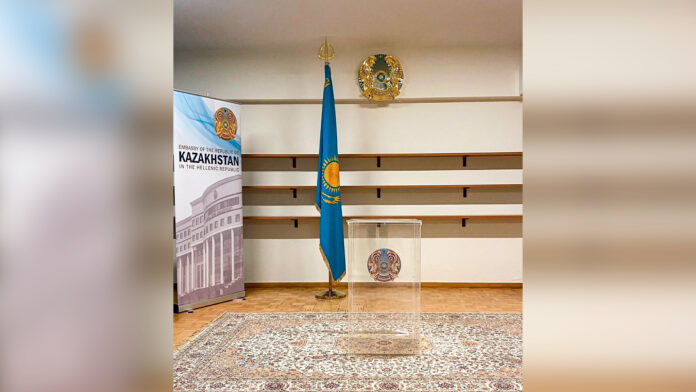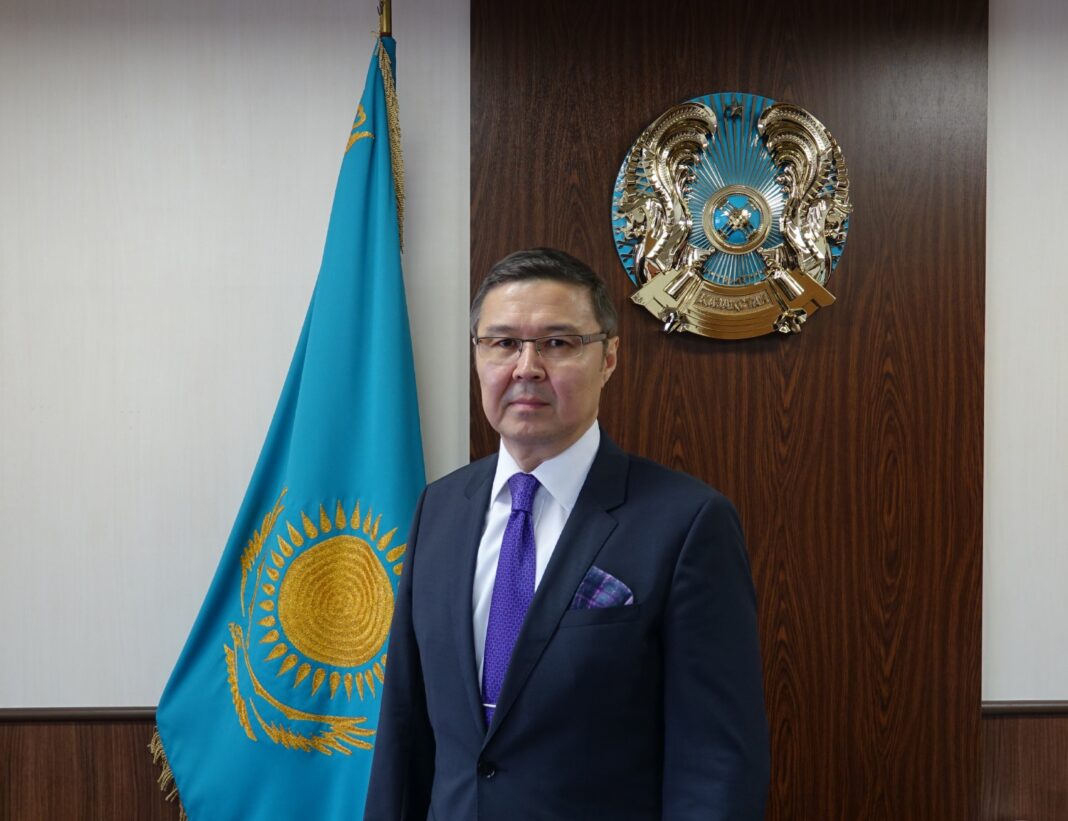By H.E. Mr. Yerlan Baudarbek-Kozhatayev, Ambassador of the Republic of Kazakhstan to the Hellenic Republic
On March 19, Kazakhstan held early elections for the Mazhilis (lower house of parliament) and maslikhats (local representative bodies) of the country.
The preliminary results announced by the Central Election Commission on March 21, reveal the Amanat party taking 53.90 percent. The Auyl party gained 10.90 percent, Respublica party – 8.59 percent, Aq Jol party – 8.41 percent, People’s Party of Kazakhstan – 6.80 percent, National Social Democratic Party – 5.20 percent and Baytaq party – 2.30 percent. Around 3.90 percent voted against all. It means that the Parliament is anticipated to comprise six party representatives who surpassed the requisite 5 percent threshold, occupying 69 of the available seats, while the remaining 29 seats will be allocated among single-mandate candidates.
The current elections have been unique in many respects. For the first time since 2004, the Mazhilis elections employed a mixed proportional-majoritarian model, in which 70 percent of deputies are elected proportionally from party lists and 30 percent from single-mandate districts. The elections for district and nationally significant city maslikhats have also used a mixed 50/50 electoral system, while lower-level maslikhats have been elected entirely on a majoritarian basis.

Moreover, an “against all” option has been added to the ballot paper, enabling voters to express their disapproval of all nominated candidates if desired. Additionally, a 30 percent quota for women, young people, and persons with special needs has been legally established for allocating parliamentary seats on party lists, ensuring a broader representation of all groups in Parliament.
The elections signified another crucial milestone in Kazakhstan’s democratic development. In recent years, the country has undergone significant political and socio-economic transformations.
Kazakhstan has consistently affirmed its commitment to free, transparent, and fair elections. As in previous elections, including the November 2022 presidential election, ten international organizations and numerous foreign observers were invited to monitor the electoral process. These include observation missions from the Office for Democratic Institutions and Human Rights (OSCE/ODIHR) and the Commonwealth of Independent States.

The constitutional amendments implemented after a nationwide referendum in June 2022 have laid the groundwork for new democratic principles in Kazakhstan. These include increased parliamentary influence, limited presidential powers, streamlined registration procedures for new political parties, direct elections of rural Akims (Mayors), and other essential measures.
Several policy initiatives were launched in January this year, with the establishment of the Constitutional Court being particularly noteworthy. Any citizen, the Human Rights Ombudsman, and the Prosecutor General can appeal to this court, which ensures that the country’s laws are consistent with the Constitution and that citizens’ fundamental rights are protected. The chairwoman of the Constitutional Court, Elvira Azimova, formerly served as Kazakhstan’s Commissioner for Human Rights, which highlights the court’s priorities and direction.
While the elections are not expected to transform the country overnight, they are considered to contribute significantly to building a Just Kazakhstan – a prosperous society with a vibrant, dynamic, and competitive political system. Such a country will be an even stronger and more dedicated partner within the international community.
It is somewhat symbolic that Greece will also hold elections for its main legislative body this year, adding momentum to our states’ efforts to strengthen and expand the existing foundation of extensive bilateral ties, adapted to the current needs and demands of the peoples of Kazakhstan and Greece.
As the world grapples with ongoing geopolitical and geoeconomic challenges, a stable and prosperous Kazakhstan serves the interests of not only its citizens but also those far beyond its region. Our political reforms, supported by competitive elections, form the basis upon which we will ensure our stability and continue to build our future.



